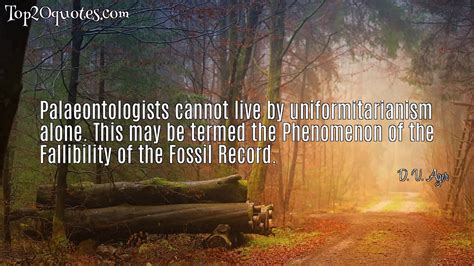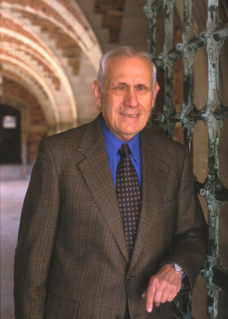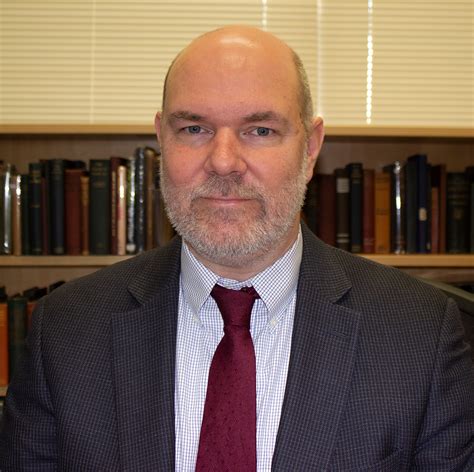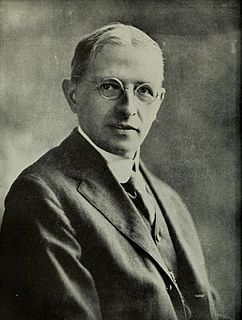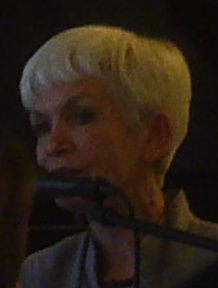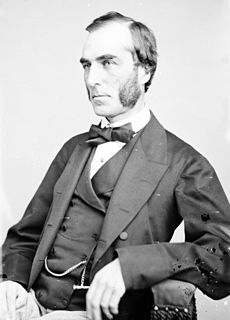Top 1200 Modern History Quotes & Sayings - Page 17
Explore popular Modern History quotes.
Last updated on November 15, 2024.
In the preface to his great History of Europe, H. A. L. Fisher wrote: "Men wiser than and more learned than I have discerned in history a plot, a rhythm, a predetermined pattern. These harmonies are concealed from me. I can see only one emergency following upon another as wave follows upon wave ..." It seems to me that the same is true of the much older [geological stratigraphical] history of Europe.
Rigorously investigated and fearlessly reported, A Crime So Monstrous is a passionate and thorough examination of the appalling reality of human bondage in today's world. In his devastating narrative, Ben Skinner boldly casts light on the unthinkable, yet thriving, modern-day practice of slavery, exposing a global trade in human lives. The abuses detailed in these pages are repugnant, but there is hope to be found: by giving voice to the victims, Skinner helps restore their dignity and makes crucial strides toward closing this shameful chapter in history.
Chauvet Cave is rather like the awakening of the modern human soul or I would say the awakening of modern human culture. Because Neanderthal men who still rode the landscape parallel to the people who did these paintings didn't have culture. There's no evidence of culture, no symbolic depiction, no evidence of music, no evidence of sculptures, no evidence of religious beliefs.
Why I talked about political correctness: the colonial is now such a major taboo that any achievement of the colonial period, or any generosity implied in colonialism, is again fundamentally neglected or fundamentally not recognised. That's crazy, because history is a series of layers, and you cannot say, "This layer I support and this layer I cancel." History is history and you cannot retrospectively manipulate it.
If you were to do the world championship of victimhood in modern times, then the finals would probably be between Jews and Palestinians. I think the Jews win: we, Isralians, go from the Spanish Inquisition to pogroms to the fake Protocols of the Elders of Zion to World War II and the Holocaust - it's a horrible history. And if you look at the Palestinian world, victimized by every entity in the Middle East, they were massacred in every country. I think that, in Israel, the greatest fear that people have, and I have it, too, is this fear of genocide.
I had read the criticisms of me and my movies and they were discerning. They said that Crawford needs a new deal, and they asked if I was doomed to explore forever the emotional misfortunes of the super-sexed modern young woman. And so, to break away from the pattern, I wanted to do "The Gorgeous Hussy". Selznick laughed at me. 'You can't do a costume picture. You're too modern.' But I begged and begged and begged, and so they let me do it. I was totally miscast.
Don't neglect your critical faculties. Remember that God is a rational God, who has made us in His own image. God invites and expects us to explore His double revelation, in nature and Scripture, with the minds He has given us, and to go on in the development of a Christian mind to apply His marvellous revealed truth to every aspect of the modern and post-modern world.
For 500 years the West patented six killer applications that set it apart. The first to download them was Japan. Over the last century, one Asian country after another has downloaded these killer apps- competition, modern science, the rule of law and private property rights, modern medicine, the consumer society and the work ethic. Those six things are the secret sauce of Western civilization.
Women should be permitted to volunteer for non-combat service... We have no real way of knowing whether the kinds of training that teach men both courage and restraint would be adaptable to women or effective in a crisis. But the evidence of history and comparative studies of other species suggest that women as a fighting body might be far less amenable to the rules that prevent war from becoming a massacre and, with the use of modern weapons, that protect the survival of all humanity. That is what I meant by saying that women in combat might be too fierce.
One of the most striking results of modern investigation has been the way in which several different and quite independent lines of evidence indicate that a very great event occurred about two thousand million years ago. The radio-active evidence for the age of meteorites; and the estimated time for the tidal evolution of the Moon's orbit (though this is much rougher), all agree in their testimony, and, what is far more important, the red-shift in the nebulae indicates that this date is fundamental, not merely in the history of our system, but in that of the material universe as a whole.
Inanimate objects are sometimes parties to litigation. A ship has a legal personality, a fiction found useful for maritime purposes. The corporation sole - a creature of ecclesiastical law - is an acceptable adversary, and large fortunes ride on its cases... So it should be as respects valleys, alpine meadows, rivers, lakes, estuaries, beaches, ridges, groves of trees, swampland, or even air that feels the destructive pressures of modern technology and modern life.
The family indeed is dead, if what we mean by it is the modern family system in which units comprised of male breadwinner and female homemaker, married couples, and their offspring dominate the land. But its ghost, the ideology of the family, survives to haunt the consciousness of all those who refuse to confront it. It is time to perform a social autopsy on the corpse of the modern family system so that we may try to lay its troublesome spirit to rest.
Propelled by freedom of faith, gender equality and economic justice for all, India will become a modern nation. Minor blemishes cannot cloak the fact that India is becoming such a modern nation: no faith is in danger in our country, and the continuing commitment to gender equality is one of the great narratives of our times.
What disconcerts the modern world at its very roots is not being sure, and not seeing how it ever could be sure, that there is an outcome-a suitable outcome to evolution. Half our present uneasiness would be turned to happiness if we could once make up our minds to accept the facts and place the essence and the measure of our modern cosmogonies within a noogenesis.
It's no mistake that Harriet Tubman is revisiting us, in different forms, right now, as we travel through a very contentious time in the world. Her spirit is one that we absolutely need today, as we face odds that are akin to the divisive and systemic oppression that we read about in our history books, but it's taken on a modern-day articulation of itself. I almost believe that Harriet Tubman asked God for a leave like, "I'm gonna need to go back down there and take care of some things. They're in trouble."
We have educated ourselves into a world from which wonder, and he fear and dread and splendor and freedom of wonder have been banished. Of course wonder is costly. You couldn't incorporate it into a modern state, beacuse it is the antithesis of the anxiously worshiped security which is what a modern state is asked to give. Wonder is marvellous but it is also cruel, cruel, cruel. It is undemocratic, discriminatory and pitiless.
You see, when you're middle class, you have to live with the fact that history will ignore you. You have to live with the fact that history can never champion your causes and that history will never feel sorry for you. It is the price that is paid for day-to-day comfort and silence. And because of this price, all happinesses are sterile; all sadnesses go unpitied.
Certainly a big challenge for me with evening-wear is to make it look modern and artistic and avant-garde. The very concept of a ball gown is not in itself a modern concept, and women need to wear that for a certain presence in Hollywood. I'm also aware that a starlet might go to more than one place that night so the piece could also offer, maybe not a revolution, but an evolution.
History, when rightly written, is but a record of providence; and he who would read history rightly, must read it with his eyes constantly fixed on the hand of God. This statement of a nineteenth-century historian sums up the responsibility of the Christian teacher of history, for he who would teach history or any subject matter rightly, must teach it with his eyes constantly fixed on the hand of God.
I did not know much history when I became a bombardier in the U.S. Air Force in World War II. Only after the War did I see that we, like the Nazis, had committed atrocities... Hiroshima, Nagasaki, Dresden, my own bombing missions. And when I studied history after the War, I learned from reading on my own, not from my university classes, about the history of U.S. expansion and imperialism.
I think there is a modern temper. The authority figures we revered in the past are all up for grabs - they're gone. We are groping for meaning in a world where some of our gods have died. We're asking ourselves, 'Who is our true brother and sister, where is our true home?' The modern tempter is our struggle to lead meaningful lives, and even if we don't believe in religion, we can reach down and hold on to our core values for guidance.
Modern man has been in search of a new language of form to satisfy new longings and aspirations - longings for mental appeasement, aspirations to unity, harmony, serenity - an end to his alienation from nature. All these arts of remote times or strange cultures either give or suggest to the modern artist forms which he can adapt to his needs, the elements of a new iconography.
What is needed is a move beyond tradition, nothing less than a reform movement to bring the core concepts of Islam into the modern age, a Muslim Reformation to combat not only the jihadist ideologues but also the dusty, stifling seminaries of the traditionalists, throwing open the windows to let in much-needed fresh air.... It is high time, for starters, that Muslims were able to study the revelation of their religion as an event inside history, not supernaturally above it.... Broad-mindedness is related to tolerance; open-mindedness is the sibling of peace.
My book, Oral History: Understanding Qualitative Research is about how researchers use this method and how to write up their oral history projects so that audiences can read them. It's important that researchers have many different tools available to study people's lives and the cultures we live in. I think oral history is a most needed and uniquely important strategy.
Modern art to me is nothing more than the expression of contemporary aims of the age we’re living in. All cultures have had means and techniques of expressing their immediate aims – the Chinese, the Renaissance, all cultures. The thing that interests me is that today painters do not have to go to a subject matter outside of themselves. Most modern painters work from a different source, they work from within.
The discussion of the game of marbles seems to have led us into rather deep waters. But in the eyes of children the history of the game of marbles has quite as much importance as the history of religion or of forms of government. It Is a history, moreover, that is magnificently spontaneous; and it was therefore perhaps not entirely useless to seek to throw light on the child's judgment of moral value by a preliminary study of the social behaviour of children amongst themselves.


